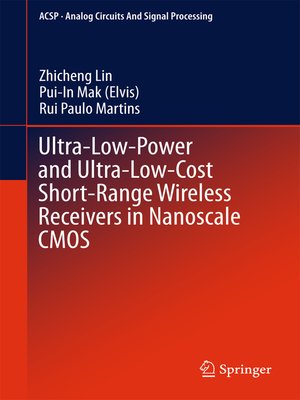Ultra-Low-Power and Ultra-Low-Cost Short-Range Wireless Receivers in Nanoscale CMOS
ebook ∣ Analog Circuits and Signal Processing
By Zhicheng Lin

Sign up to save your library
With an OverDrive account, you can save your favorite libraries for at-a-glance information about availability. Find out more about OverDrive accounts.
Find this title in Libby, the library reading app by OverDrive.



Search for a digital library with this title
Title found at these libraries:
| Library Name | Distance |
|---|---|
| Loading... |
This book provides readers with a state-of-the-art description of techniques to be used for ultra-low-power (ULP) and ultra-low-cost (ULC), short-range wireless receivers. Readers will learn what is required to deploy these receivers in short-range wireless sensor networks, which are proliferating widely to serve the internet of things (IoT) for "smart cities." The authors address key challenges involved with the technology and the typical tradeoffs between ULP and ULC. Three design examples with advanced circuit techniques are described in order to address these trade-offs, which special focus on cost minimization. These three techniques enable respectively, cascading of radio frequency (RF) and baseband (BB) circuits under an ultra-low-voltage (ULV) supply, cascading of RF and BB circuits in current domain for current reuse and a novel function-reuse receiver architecture, suitable for ULV and multi-band ULP applications such as the sub-GHz ZigBee.







